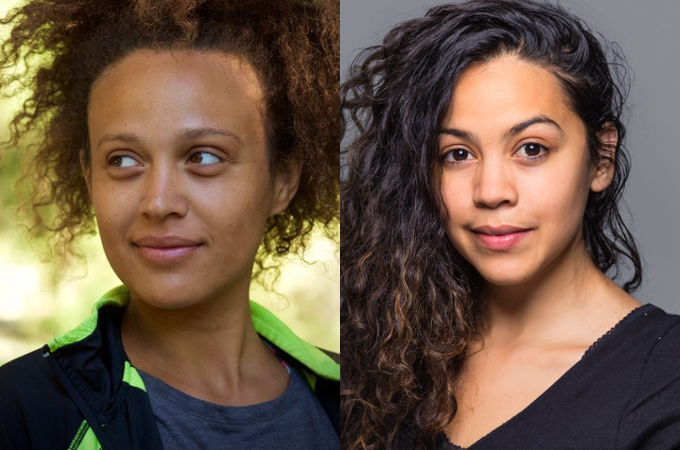
Our Move Next is an African speculative fiction digital anthology that is free and open-source. The anthology is curated by the South African company Backyard Pitch Productions, led by Sarah Summers and Kelly – Eve Koopman.
Published earlier this year, the anthology contains works by 19 writers and 8 visual artists from across the African continent, including Oyedotun Damilola, Xabiso Vili, Kneo Mokgopa, and Tolo LikaKheswa.
Summers and Koopman are co-curators of the Our Move Next anthology and co-directors of the social enterprise that produced the anthology, Backyard Pitch Productions. We were able to catch up with Summers and Koopman as they take us behind the scenes of their fascinating project in this interview and explain some key concepts in African speculative fiction.
As a cultural producer, Summers has steered many innovative multimedia products and platforms, including the viral webseries and online dialogue platform Coloured Mentality, the Facebook game The New Normal, and the digital platform Until We Remember. As a writer, Koopman has published several works, including her debut memoir Because I Couldn’t Kill, longlisted for the 2022 Sunday Times National Book Award. Koopman is also the co-curator of the publicly acclaimed LGBTQI anthology They Called Me Queer.
Download Our Move Next for free HERE. Choose between PDF or EPUB files.
***
Brittle Paper
Hello! Congrats on the new anthology. It’s a significant contribution to the rapidly growing speculative fiction space in African literature. What inspired it?
Sarah Summers and Kelly – Eve Koopman
The mutual work we have created and produced has generally been rooted in creative production in pursuit of social change. Speculative fiction is a genre that inspires both the writer and reader towards imagining worlds beyond the norm.
By building and sharing these worlds, we experience catharsis or hope and inspiration. Our Move Next was compiled in the midst of the Covid crisis, during the tail end of a national mandated lockdown in South Africa, a period we emerged from in a collective crisis of the imagination for how to grieve this period and how to begin building new realities with the knowledge that Covid had heightened and further fractured our broken social infrastructure. .
It was an important moment to contribute to the imagining world, to sift through the confusion and edge towards a new normal we can inform and get behind, not be subjected to or forced to follow.
Brittle Paper
For those who are not familiar with the work you do at Backyard Pitch, tell us a bit about the project and the people behind it. How many artists and writers are featured in the collection, and what was it like working with them?
Sarah Summers and Kelly – Eve Koopman
The book was curated and produced through our social impact business, Backyard Pitch Productions and it was funded by the Heinrich Boell Foundation with Thoko Madonko as our project lead.
The book features 19 written contributions from a range of different writers located in South Africa, Botswana, Zimbabwe and Nigeria as well as 7 different artworks, featured in the gallery in the centre of the book, mostly from South Africa with one piece of work from Indonesia.
The rest of the team behind the book includes Vasti Hannie who worked as a production coordinator and is also an Our Move Next contributor. Editor Kelly Smith came on to edit and proof our copy and we worked with Shameez Joubert, a graphic artist to tailor make a piece of art that interpreted every piece in the book, so each written piece has a bespoke original illustration.
Working with the writers was a collaborative process, as creators we were new to this process as well. With our call for contributions we welcomed neat drafts offering leeway for writers to continue working on their pieces. After an initial virtual meet up with all of our writers, we offered each writer our own specific feedback on their work, based on the priorities and interests we had for the book as co-curators. We then created a writing resources folder featuring specific resources that we considered might be useful for each contributor.
Following this we paired each writer so that they could offer each other feedback and further support each other in the development of their work.
Finally we met with each pair of writers to discuss the challenges and opportunities they were facing in the process and input on final changes. Ultimately at each step, decisions rested with the writers and we entered into a collaborative agreement that was open for them to make final decisions and maintain agency, while we protected and ensured the ethic and quality of the book was respected.
Sometimes writers reframed stories, or landed on different endings, the process of creative collaboration we feel was rich and mutually respectful.
In all honesty we had not properly thought through how to support the artists, who contributed to our gallery with visual art not being the medium of our expertise and did not end up offering them the same support and infrastructure, artwork was submitted and after we chose the final pieces these remained as they were upon publication. This is a lesson we take into the future.
Brittle Paper
The collection links mythic, spiritual, and ancestral themes, on the one hand, and sci-fi on the other. What do you see as the gains of using African knowledge systems to imagine the future?
Sarah Summers and Kelly – Eve Koopman
As much of our work is, the book was experimental for us as well. As much as the past and present are, ideas around futures and futures- building work is culturally and socially specific. For example, ideas around what might build and secure the futures of societies in the West may not consider, profit off of or be deeply detrimental to African futures, further entrenching legacies of extraction.
Articulating, centering and claiming the modalities of remembrance that are grounded in our knowledge systems ensures that we have agency over our own archives and memory-keeping, this is essential considering the chasms of historical erasure and displacement that have threatened our histories and identities.
Ensuring that our imaginations of the future are liberated from lexicons and frameworks authored by the West that not only decentralise but actively harm Africa is inextricable from and tantamount to ensuring sovereignty and liberation on the physical plane.
The realms of the imagination and the realms of present action are symbiotic, when one becomes freer so does the other.
Brittle Paper
What would you say is timely, perhaps urgent, about the ideas and provocations in the book?
Sarah Summers and Kelly – Eve Koopman
An urgent need for healing, both social and trans-generational saturate the book and these thematics weave their way through almost every piece of work. Our experience of a lot of the Western Speculative Fiction tradition which often has themes of technological development and extraction at the centre, whether this be warnings around technology or ideas around the possibilities of hi-tech.
In Our Move Next, healing and social alignment, complicated, raw relationships with ancestors, the displacement from and mourning of history and the natural world and the effects of the legacies of colonisation and extraction and what this has done to the individual and collective psycho-social and spiritual condition of Africans saturates the book.
The narratives prevalent in the book grapple deeply with grief, and ideas of how to progress and move forward while dealing with and tending to deep personal and social wounds. If there is anything that is urgent, it is the calling for healing and restoration, for families, for communities, and the fact that the ability to become whole, to become socially healthy is tied to the urgent need for justice and equity.
Brittle Paper
You allude, in the introduction, to the practice of creating from the conviction (no matter how utopian) that systems of oppression like capitalism, racism, etc. can and will end. I find that intriguing. What sort of creative possibilities does such a conviction open up?
Sarah Summers and Kelly – Eve Koopman
Not necessarily a conviction, but an invitation to simply imagine that the end of systems of oppression and that the collective design of care oriented alternatives are possible. It is also a very unsettling invitation, because it seems too far-fetched to even contemplate. The wounds of these systems are so deep that our survival depends on believing that it won’t end – even when we strive against these forms of systemic oppressions.
To be honest, the vast majority of the submissions we received were not utopian. There are no stories or poetry in the book we would consider utopian either, perhaps there are notes of hope and resilience. We found the absence of Utopian ideals in the creative play workshops we held as well, utopia’s are far from people’s experiences right now, and while a book and process like Our Move Next offers the scaffolding and infrastructure to excavate possibilities and meditations around alternatives. Utopias perhaps feel like homogeneous one size fits all ideas that are far off from the rich specifics that writers and artivists, as architects of the future and narrators of the present and re-imaginers of history are building through story.
This invitation calls writers and artists to be authentic in their experience of the present, their interpretations of the past and their ideas about the future. While the speculative genre offers a medium that elevates these experiences out of the current consensual reality exposes cultural and social traumas that exist – even in the imagination.
These traumas exist for good reason and so we purge into the text, observe how these experiences create narratives and build the skill to imagine beyond capitalism together. If we didn’t discuss the socio-environmental and political realities we face, we probably would have received stories that felt less bound to reality, perhaps we would have actually received some fantastical utopian stories. For now, the intrigue you encounter, is the inciting idea we hope to inspire.
Because it means that the questions that follow gets deeper engagement – how does capitalism and global inequity come to an end, what comes next and what power do I have as an artist, thinker or writer to co-create these alternative realities.
Brittle Paper
The dedication of the book is a poignant evocation of trans-generational connections—an idea that is particularly salient in a world where digital culture is rapidly eroding a sense of history. What drew you to this particular theme of trans-generational awareness?
Sarah Summers and Kelly – Eve Koopman
An interesting question because while the business and politics of a captured digital culture creates data subjects out of us, to be extracted from by tech oligarchs, it also offers particular archival opportunities.
If we want to claim our own authority; remember our own pasts with authenticity, have agency and nuance in how we narrate our presents and assert the way we imagine our own futures, the digital realm becomes a tool that we must harness for self-authorship.
While we used the framing of speculative fiction when compiling the book, throughout the development and publishing process we have started referring to the book as “possible digital folklore”. We think this term holds some of the paradoxes and possibilities implicit in creating new mythologies in a digital space.
We suppose with Our Move Next we were experimenting with merging the digital space and the literature space and observing how these could meet.
In our own social justice work, through the lens of care politic, trans and intergenerational healing has emerged as paramount, better alternative worlds are not worth building or possible to construct if we who build and participate in them are wounded.
Most of the submissions we received for the book, even those not selected for the final publication, grappled with healing, our collective need for healing and care is emerging as essential in almost every space
Brittle Paper
In the African literary scene, speculative art skews in favor of fiction. But the collection features poetry and graphic art, in addition to fiction. Why was it important to you to expand beyond fiction?
Sarah Summers and Kelly – Eve Koopman
We wanted contributors to play and experiment with both the themes and narratives as well as the mediums and modalities. The premise behind the public invitation was that contributors felt as free as possible to interpret the genre. We invited contributors to submit work in any language and planned to work with interpreters during the selection process but not translate the work upon publication, however most of the writing is in English and there are two pieces in isiXhosa.
Because Our Move Next offers a low pressure space, the book is free to download and does not have the pressure of sales or the securing of a particular kind of audience this meant that we could invite contributors to unleash their own creativity, we did not want the book to be limited by one form or genre and thought it would be interesting to throw open the doors of a genre that by definition encompasses almost everything and observe what came in.
Brittle Paper
Thank you for this interview, Sarah and Kelly – Eve, and thank you for sharing your work with us and our readers!
***
Download the Our Move Next anthology for free HERE.


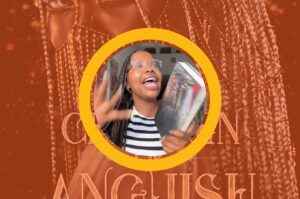
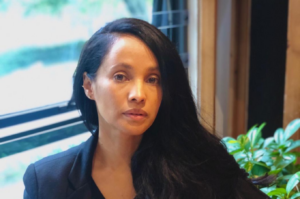
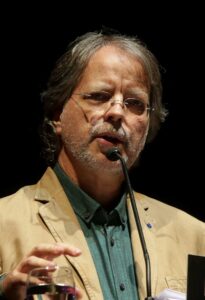
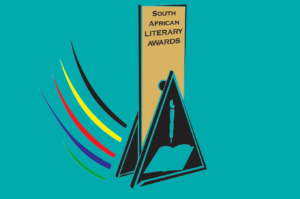
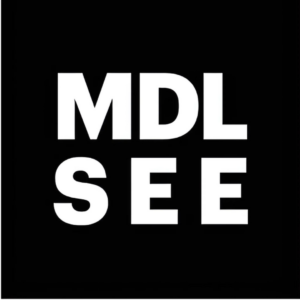
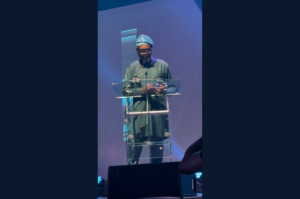

COMMENTS -
Reader Interactions